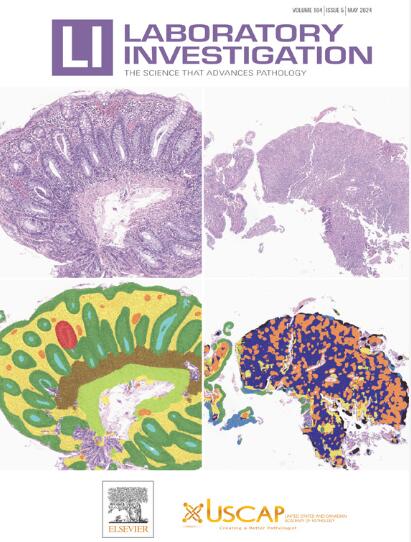Telepathology for Consultation in the Military Health System: An Evaluation of Pathologists’ Impressions of Facilitators and Barriers Prior to Implementation
IF 4.2
2区 医学
Q1 MEDICINE, RESEARCH & EXPERIMENTAL
引用次数: 0
Abstract
Challenging pathology case consultations require the shipment of irreplaceable patient materials to the consultants’ location for evaluation. In the military, consultants and generalists span geographically diverse locations. Shipped cases risk diagnostic delays, loss, and irreparable damage in transit over extensive distances. Using digital pathology for consultation eliminates these risks. Digital pathology implementation efforts in the Military Health System have been unsuccessful; however, triservice pathologists’ attitudes toward this innovation have never been investigated. Our explanatory mixed-methods study used a web-based needs assessment and interviews to understand pathologists’ facilitators and barriers to using digital pathology for consultation. We believe that understanding their perceptions is critical if further implementation efforts are to be successful. Analyses showed that pathologists were receptive to enterprise-wide implementation, especially if it improved turnaround time and allowed immediate subspecialist feedback. Future implementation efforts may benefit from comprehensive technical support combined with a consolidated digital pathology program office for implementation and sustainment guidance.
军事卫生系统会诊的精神病理学:病理学家在实施前对促进因素和障碍的印象的评估。
具有挑战性的病理病例咨询需要运送不可替代的病人材料到顾问的位置进行评估。在军队中,顾问和通才跨越了不同的地理位置。运输病例在长途运输过程中存在诊断延误、损失和不可挽回的损害的风险。使用数字病理学进行会诊消除了这些风险。数字病理学在军队卫生系统中的实施工作并不成功;然而,三服务病理学家对这种创新的态度从未被调查过。我们的解释性混合方法研究使用基于网络的需求评估和访谈来了解病理学家使用数字病理学进行咨询的促进因素和障碍。我们认为,要使进一步的执行努力取得成功,了解他们的看法是至关重要的。分析表明病理学家接受企业范围内的实施,特别是如果它改善了周转时间并允许即时的子专家反馈。未来的实施工作可能受益于全面的技术支持,并结合一个统一的数字病理学项目办公室来实施和维持指导。
本文章由计算机程序翻译,如有差异,请以英文原文为准。
求助全文
约1分钟内获得全文
求助全文
来源期刊

Laboratory Investigation
医学-病理学
CiteScore
8.30
自引率
0.00%
发文量
125
审稿时长
2 months
期刊介绍:
Laboratory Investigation is an international journal owned by the United States and Canadian Academy of Pathology. Laboratory Investigation offers prompt publication of high-quality original research in all biomedical disciplines relating to the understanding of human disease and the application of new methods to the diagnosis of disease. Both human and experimental studies are welcome.
 求助内容:
求助内容: 应助结果提醒方式:
应助结果提醒方式:


